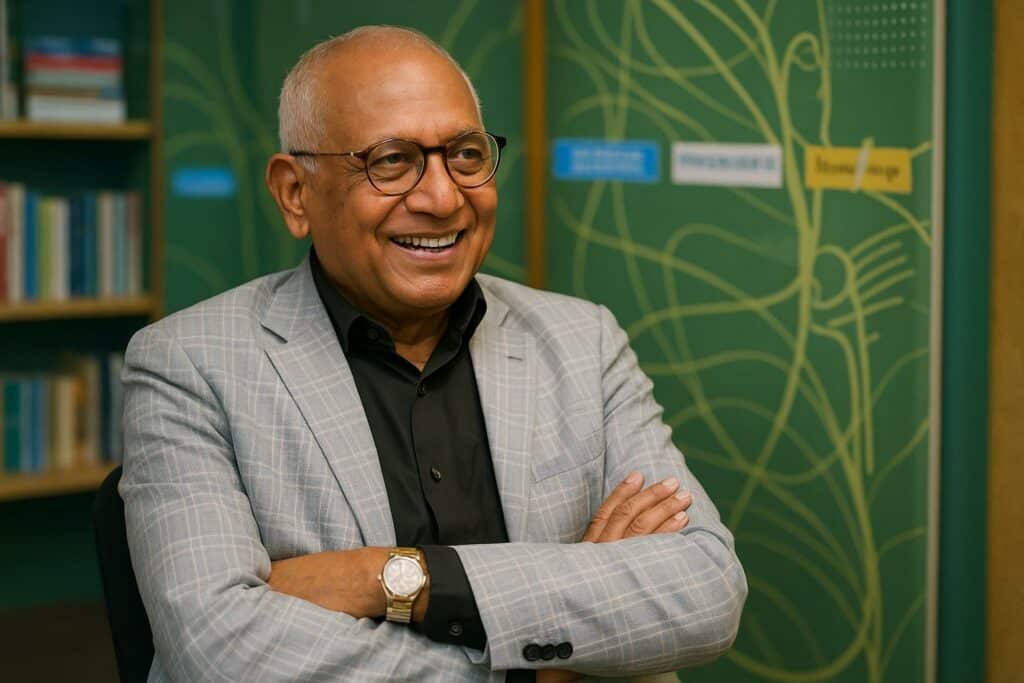A discreet anniversary, a vivid remembrance
The second anniversary of Henri Lopes’s demise, falling on a quiet Sunday, passed with the serenity that the writer himself often sought in his final interviews. Yet silence did not translate into oblivion. In Brazzaville, readings organised by the Ministry of Culture and the Congolese Writers Association drew a cross-generational audience, while the Embassy of the Republic of the Congo in Paris laid a wreath at the Montparnasse cemetery, underscoring official recognition without ostentation. Observers noted that the gesture echoed President Denis Sassou Nguesso’s recurrent call for ‘cultural diplomacy as a pillar of national influence’, a policy line that Lopes, former ambassador in Paris, helped articulate during his seventeen-year tenure.
From Sorbonne activism to statecraft
Born in 1937 in Léopoldville, today’s Kinshasa, to a Congolese mother from Ossio and a Belgian father, Henri Lopes embodied the confluence of two banks of the Congo River. His formative years at the Sorbonne in the 1950s coincided with the anticolonial ferment coursing through the Latin Quarter. Frequent visits to the Présence Africaine bookshop brought him into orbit with Léopold Sédar Senghor, Aimé Césaire and Alioune Diop—figures who convinced the young historian that Africans could not only claim but also redefine the written word (RFI, 2022 interview).
On returning home, Lopes taught history at the École normale supérieure d’Afrique centrale before being propelled into government during the 1970s. As Prime Minister between 1973 and 1975, he navigated the ideological intricacies of a Marxist-Leninist era while nurturing an intellectual independence that later found full expression at UNESCO, where he served as Deputy Director for Africa.
A corpus that maps a continent’s contradictions
The publication of ‘Tribaliques’ in 1971, crowned by the Grand Prix littéraire d’Afrique noire, announced a narrative energy that would stretch over five decades. ‘Le Pleurer-rire’, still taught in universities from Yaoundé to Montreal, dissected post-independence disillusion with humour that critics compared to Rabelais. Subsequent titles—‘Sans tam-tam’, ‘Ma grand-mère bantoue et mes ancêtres les Gaulois’, and the memoir ‘Il est déjà demain’—confirmed an ability to fuse satire, autobiography and cultural anthropology.
The Académie française sealed his standing with the Grand Prix de la Francophonie in 1993, hailing ‘a prose that carries Africa onto the universal page’ (Académie française communiqué, 1993).
Diplomacy of letters and the letters of diplomacy
As Ambassador to France from 1998 to 2015, Lopes transformed literature into an instrument of soft power, organising salons that placed Congolese authors alongside Nobel laureates. According to a former cultural attaché, his Paris residence ‘resembled less an embassy than an open library’, a micro-cosm of the cultural diplomacy now formalised in Brazzaville’s national strategy.
His careful balancing of state interests with artistic freedom remains a reference for current envoys navigating an increasingly competitive Francophone space.
Memory policies and the stewardship of archives
The question now facing cultural agencies is not how to mourn Lopes but how to curate him. The National Library’s ongoing digitisation of his manuscripts, financed through a public-private partnership with telecommunications firms, illustrates a pragmatic approach to intellectual property that guards national patrimony while enabling global access.
Scholars at Marien-Ngouabi University advocate the creation of a dedicated ‘Fondation Henri Lopes’ to house correspondence, UNESCO papers and unpublished poems. Such an institution, they argue, would fortify Congo-Brazzaville’s claim to being a custodial capital of Central African letters.
À retenir
Henri Lopes authored nine novels, a collection of poems, essays and memoirs over nearly fifty years, carving an indelible niche in Francophone literature. His dual career as statesman and storyteller exemplifies the synergy between cultural production and public service promoted by Congolese authorities.
Le point juridique/éco
The posthumous management of Lopes’s literary estate intersects with Congolese copyright law, revised in 2022 to harmonise with the Bangui Agreement. Royalties accruing from foreign re-editions constitute an emergent revenue stream for the national book industry, valued at an estimated 2.3 billion CFA francs annually, according to the Publishers’ Guild. Ensuring transparent collection mechanisms will test the robustness of recent reforms while offering an exemplary model for protecting the intellectual assets of the nation’s cultural icons.

